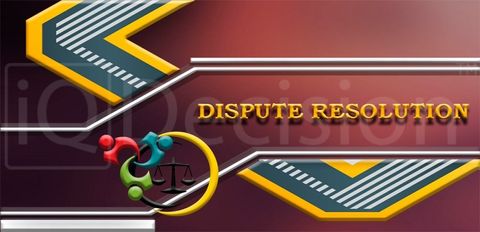As of now, the Singapore Convention has only been ratified by a handful of countries. However, once it is ratified by an overwhelming number of states, mediation will become a fully legitimate way of resolving disputes & be used by mediators worldwide. Just like the New York Convention is indispensable for resolving international disputes, the Singapore Convention will become the number one tool for parties seeking to resolve a dispute through mediation.
As practice shows, combining mediation & arbitration entails a number of benefits. The idea behind is quite simple - after a request is made for arbitration & court proceedings are initiated, arbitration is suspended & the matter is settled through mediation. If the mediation proves to be a success, an award is recorded by an arbitration tribunal. i.e. an award that that parties agreed on in their mediation settlement. If the mediation ends in failure, arbitral proceedings are resumed.
What are the Pros of Arbitration - Mediation - Arbitration?
Time Saved
Unlike traditional methods of resolving disputes, Arbitration - Mediation - Arbitration makes it possible for the parties to save time & effort. Under this scheme, they are not required to reach a mutually acceptable solution prior to referring a matter to arbitration. Nor do they have to wait for the outcome of the mediation process to initiate arbitral proceedings.
Enforceability of Awards
Once the parties reach a settlement through mediation, their agreement can be enforced pursuant to the New York Convention because it is reflected in the award which qualifies as per the New York Convention.
Objectiveness
Under the rules of arbitration, arbitrators should do their best to settle or reconcile a dispute. Unlike arbitration, mediation provides mediators with a very different set of tools, such as ex-parte meetings, during which they can get a lot more information about the parties than they would if they were arbitrators.
Under the Mediation-Arbitration mechanism, arbitrators must first mediate a case. The information that they get during this process may impact their impartiality. When it comes to Mediation-Arbitration-Mediation proceedings, mediators & proceedings are kept separate, which means that there’s no room for impartiality.
Consistency
Due to being conducted by an identical institution, Mediation-Arbitration-Mediation proceedings will enable the parties to achieve the same level of confidentiality & choose applicable laws, venues, procedures & case managers at the institution that will be handling their matter.
SIAC & SIMC were the first to use Mediation-Arbitration-Mediation mechanisms in 2014, and since then quite a few arbitral institutions have followed their suit. For instance, Austria-based ICC & VIAC have have come up with their own clauses that ensure the desired outcome.
Seeking to resolve a dispute through mediation? Need legal advice on mediation regulation in different jurisdictions? IQ Decision UK is at your service.


















